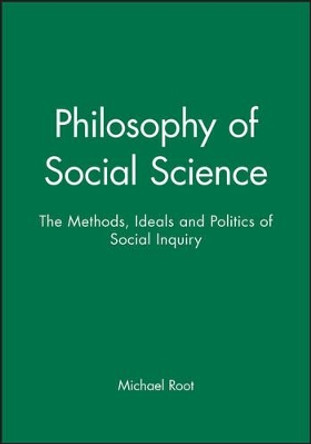Description
Realist Inquiry in Social Science is an invaluable guide to conducting realist research. Written by highly regarded experts in the field, the first part of the book sets out the fundamentals necessary for rigorous realist research, while the second part deals with a number of its most important applications, discussing it in the context of case studies, action research and grounded theory amongst other approaches.
Grounded in philosophical methodology, this book goes beyond understanding knowledge justification only as empirical validity, but instead emphasises the importance of theoretical criteria for all good research. The authors consider both quantitative and qualitative research methods, and approach methodology from an interdisciplinary viewpoint. Using abductive reasoning as the starting point for an insightful journey into realist inquiry, this book demonstrates that scientific realism continues to be of major relevance to the social sciences.
About the Author
Brian Haig is a Professor in the Department of Psychology at the University of Canterbury, and a Visiting Professor in the Department of Education at the University of Bath. He is a theoretical psychologist who has published numerous articles in psychology, education, and philosophy journals on the conceptual foundations of quantitative and qualitative research methods, and the nature of psychological science more generally. He recently published a book entitled Investigating the Psychological World (MIT Press, 2014). He is a Fellow of the Association for Psychological Science and the New Zealand Psychological Society. Colin Evers is Professor of Educational Leadership at the University of New South Wales, having previously worked at The University of Hong Kong, Monash University, and the University of Sydney. He studied mathematics, philosophy, and education before taking his PhD in philosophy of education at the University of Sydney. His teaching and research interests are in educational administration, philosophy of education, and research methodology. He has co-edited and co-authored ten books in his various fields of interest including Knowing Educational Administration, Exploring Educational Administration and Doing Educational Administration (all written with Gabriele Lakomski and published by Pergamon/Elsevier) and many papers.
Reviews
The current replication crisis in psychology makes professors' Haig and Evers book as timely as it is erudite. Using philosophical realism as their organizing principle, they take the reader on a creative and insightful tour through validity, Grounded Theory, factor analysis and case studies in an effort to improve and advance psychological research.
-- James W. GriceRealist Inquiry in Social Science comes as a complete breath of fresh air in a domain predominated by anti-realism. I was especially charmed and mesmerized by its recognition of the primacy of problems and its focus on abductive reasoning. -- Tim De Mey
This book provides an accessible and systematic introduction to Realist methodologies in the social sciences. It covers qualitative and quantitative research methods from a Realist perspective, making clear how this approach provides a fruitful and practical way for social scientists to approach research methods. That a book of such clarity should have been written by Brian Haig and Colin Evers is not surprising. Over the past three decades, Realism has moved from the periphery of methodological considerations to taking centre stage. In the social sciences these authors have been central to the change in Realism's fortunes.
-- Hugh LauderBook Information
ISBN 9781446258859
Author Brian Douglas Haig
Format Paperback
Page Count 168
Imprint Sage Publications Ltd
Publisher Sage Publications Ltd
Weight(grams) 260g









